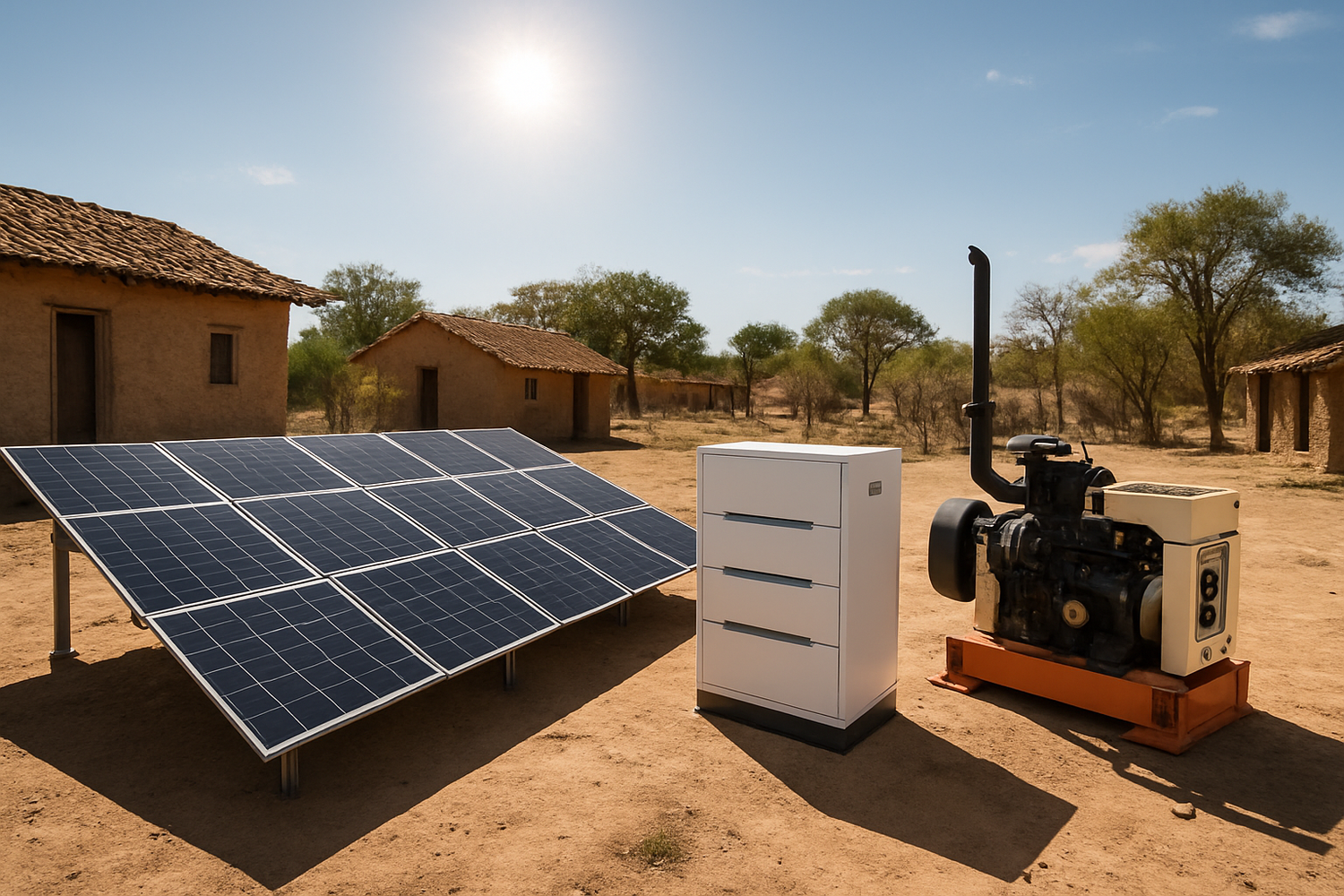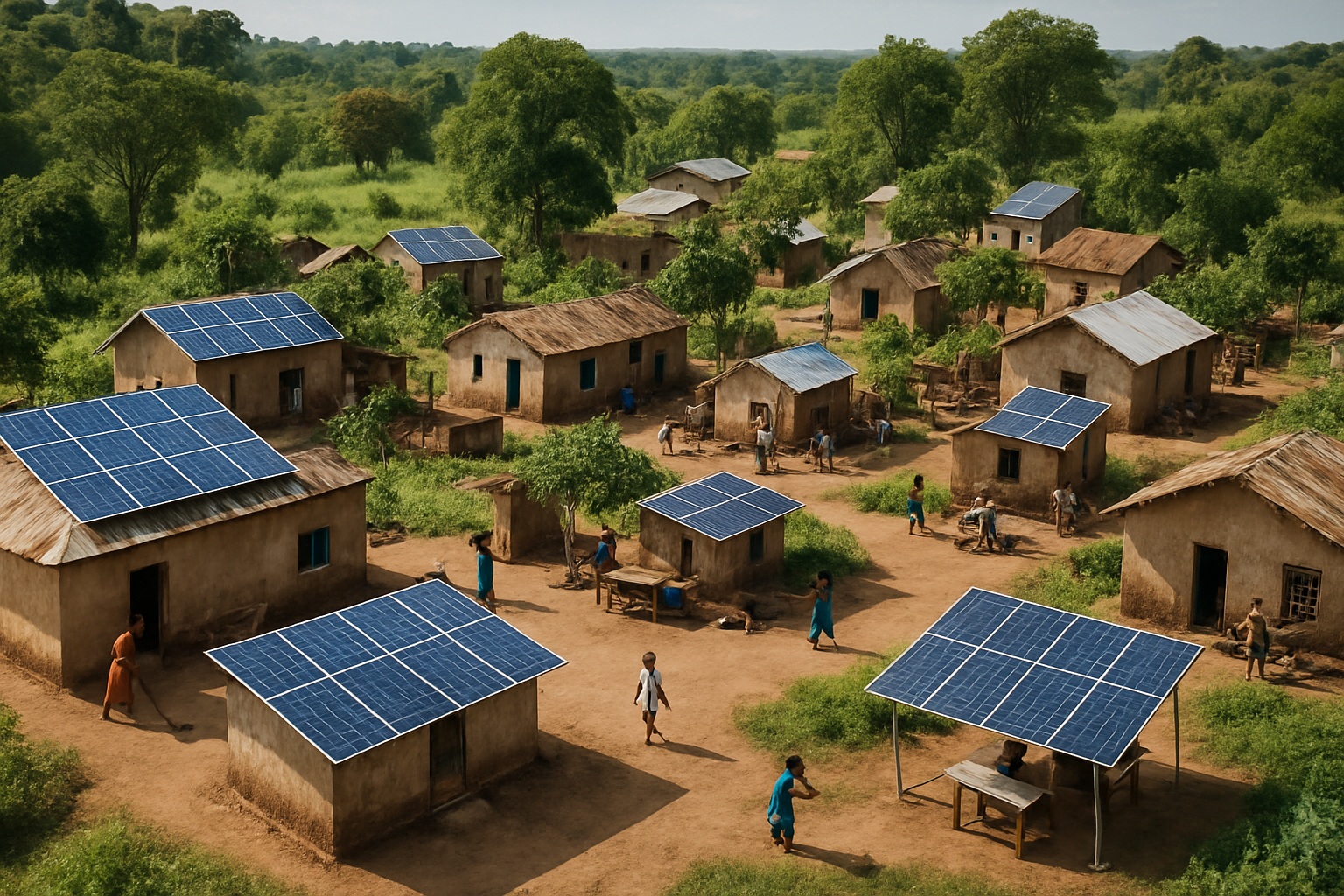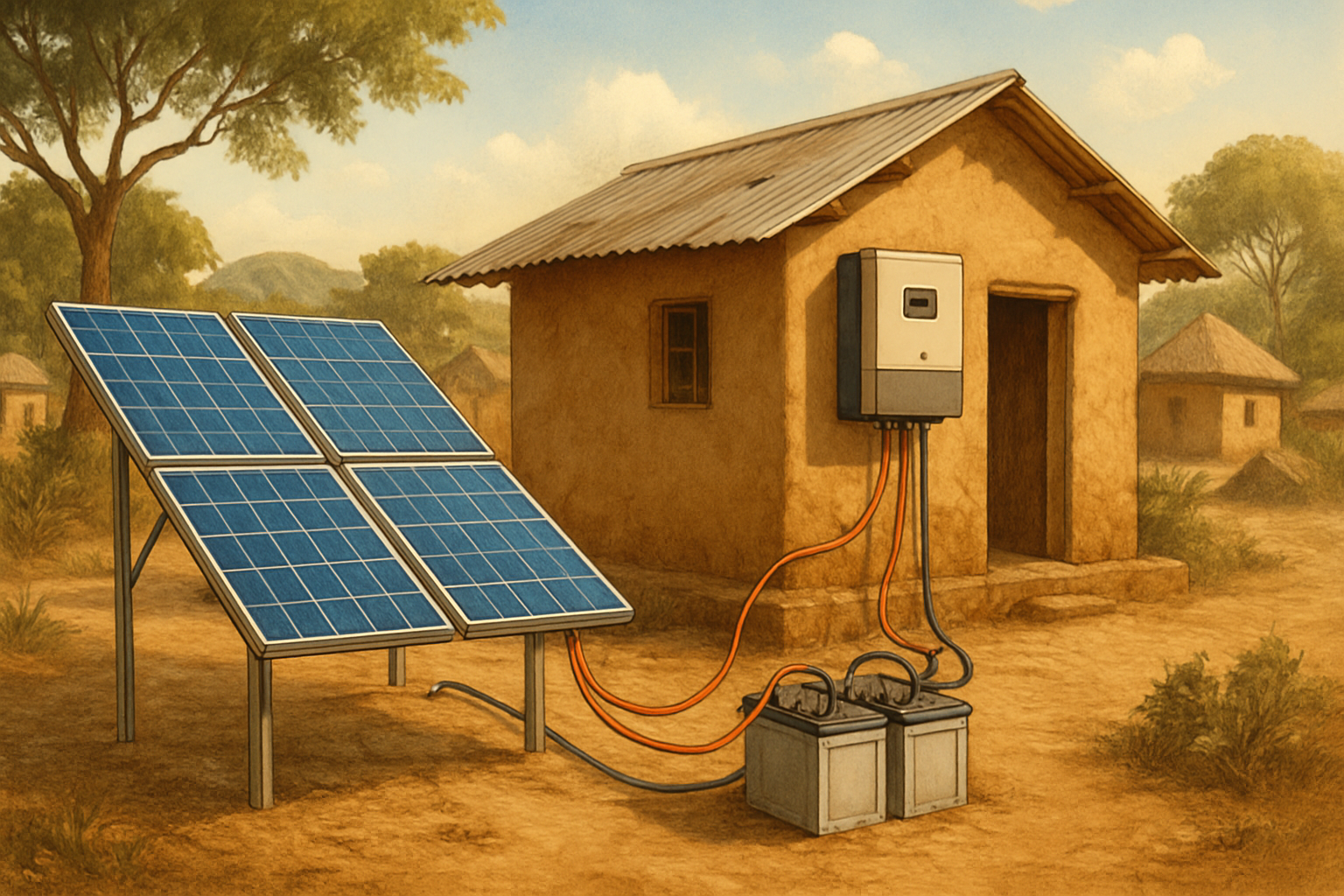For remote communities without access to a central grid, reliable electricity often comes from diesel generators. While functional, this approach brings high costs and environmental concerns. A smarter, more sustainable alternative is emerging: hybrid PV-diesel microgrids. These systems combine solar photovoltaic (PV) technology with battery storage and diesel generators, offering a powerful solution to reduce fuel consumption and enhance energy stability.

The Costly Reality of Diesel-Only Microgrids
Diesel generators have long served as the backbone for electricity generation in off-grid rural areas. However, relying solely on diesel presents significant challenges, primarily related to operational costs and environmental impact.
High Fuel Expenses and Volatility
Transporting diesel fuel to remote locations is expensive and logistically complex. These costs are compounded by the inherent volatility of global oil prices. When considering the opportunity costs—the revenue forgone by consuming oil locally instead of exporting it—the true expense of diesel-generated electricity can be substantial. For instance, at USD 80 per barrel, PV electricity from utility-scale plants can become competitive with oil-based generation, especially in regions with strong solar resources.
Environmental and Maintenance Burdens
Burning diesel fuel releases greenhouse gases and pollutants, contributing to air quality issues and climate change. Beyond environmental concerns, diesel generators require frequent maintenance, leading to additional operational expenditures and potential downtime. These factors underscore the need for more efficient and cleaner power solutions in rural microgrids.
Embracing the Hybrid PV-Diesel Solution
Hybrid PV-diesel microgrids integrate solar PV panels, advanced battery storage, and diesel generators. This combination allows communities to maximize renewable energy use while retaining the reliability of diesel as a backup.
How Hybrid Systems Work
During daylight hours, solar panels generate electricity, powering the load and charging the battery storage system. When solar generation is insufficient (e.g., at night or during cloudy periods), the stored energy in the batteries discharges. The diesel generator only activates when both solar and battery power cannot meet the demand, significantly reducing its run-time. This intelligent management optimizes energy sources, prioritizing clean, free solar power.
Key Components for Reliable Operation
- Solar PV Panels: Convert sunlight into electricity.
- Battery Energy Storage Systems (BESS): Store excess solar energy for later use. Our company specializes in high-performance, safe, and reliable lithium iron phosphate (LiFePO4) batteries, which are ideal for these applications.
- Hybrid Inverter: Manages the flow of power between solar, batteries, diesel generator, and the load.
- Diesel Generator: Provides backup power when renewable sources are insufficient.
Economic Advantages: Drastically Cutting Fuel Costs
The most compelling benefit of hybrid PV-diesel systems is their ability to substantially reduce fuel consumption and associated costs.
Real-World Savings and Examples
By minimizing diesel generator operation, hybrid systems directly translate to lower fuel purchases. The island of Ta’u in American Samoa provides a compelling example. A 1.4 MW PV micro-grid, paired with 6 MWh of Li-ion battery storage, offers three days of autonomy, drastically reducing diesel generator usage. Similarly, for industrial applications where grid access is limited, hybrid PV-diesel systems are gaining traction due to rising diesel operating costs. Chemtrols Solar Pvt Ltd, for instance, installed a 1 MWp PV hybrid solution for a cotton mill in India, demonstrating significant fuel savings.
Consider the following comparison:
| Feature | Diesel-Only Microgrid | Hybrid PV-Diesel Microgrid |
|---|---|---|
| Primary Power Source | Diesel Generator | Solar PV + Battery Storage |
| Fuel Consumption | High, continuous | Low, intermittent (backup only) |
| Fuel Cost Dependency | Very High | Reduced significantly |
| Operational Costs | High (fuel, maintenance) | Lower (reduced fuel, less generator wear) |
| Environmental Impact | High Emissions | Low Emissions |
| Energy Autonomy | Limited by fuel supply | Extended (solar + battery) |
Longer Generator Lifespan and Reduced Maintenance
Operating a diesel generator less frequently extends its lifespan and reduces the need for maintenance. This translates to lower long-term operational expenditures and improved system reliability. The shift towards decentralized energy deployment, supported by initiatives like the Kenya Off-Grid Solar Access Project (KOSAP) and World Bank loans for solar mini-grids in Nigeria, highlights the growing recognition of these economic and operational benefits.
Enhanced Reliability and Environmental Stewardship
Beyond cost savings, hybrid PV-diesel microgrids deliver superior reliability and contribute positively to environmental goals.
Ensuring Consistent Power Supply
Microgrids, especially those incorporating solar and batteries, can operate independently from the main grid. This capability ensures a steady supply of electricity to critical facilities, homes, and businesses, even during outages or periods of grid instability. Integrating battery storage, such as our high-performance LiFePO4 batteries, provides crucial energy reserves, enabling 24/7 power availability for remote communities.
Reducing Carbon Footprint
By replacing a significant portion of diesel generation with solar power, hybrid systems drastically cut greenhouse gas emissions. This aligns with global efforts to transition from fossil fuel-based power systems to renewables-based ones, particularly in regions with abundant solar resources. The cessation of fossil fuel subsidies in countries like Nigeria, which led to spiked diesel prices, further enhances the attractiveness of solar technologies.
Implementing Robust Hybrid Systems
Designing and deploying an effective hybrid PV-diesel microgrid requires careful planning and the right technology.
System Design Considerations
Accurate load assessment, solar resource analysis, and proper sizing of PV arrays, battery storage, and the diesel generator are crucial. Our company offers comprehensive off-grid solar solutions, including robust energy storage systems and efficient solar inverters, designed to meet the specific needs of diverse applications, from homes to farms and remote cabins.
The Role of Advanced Battery Storage
Battery technology is central to the success of hybrid microgrids. LiFePO4 batteries, known for their long cycle life, safety, and efficiency, are an excellent choice for storing solar energy. They enable the system to store surplus power generated during peak sun hours and discharge it when needed, minimizing reliance on the diesel generator. The deployment of battery storage systems is a key technology enabler for the transition to renewable energy systems.
A Brighter Energy Future for Rural Communities
The transition from diesel-only to hybrid PV-diesel microgrids represents a significant step forward for rural communities seeking energy independence and sustainability. These systems offer a compelling combination of reduced fuel costs, enhanced reliability, and a smaller environmental footprint. By leveraging advanced solar and battery storage technologies, communities can secure a stable and affordable power supply, fostering economic growth and improving quality of life.
Frequently Asked Questions
What is a hybrid PV-diesel microgrid?
A hybrid PV-diesel microgrid integrates solar photovoltaic panels, a battery energy storage system, and a diesel generator to provide electricity to a localized area, typically a rural community or industrial site, that is not connected to a main power grid. It prioritizes solar and battery power, using the diesel generator only as a backup.
How do hybrid systems reduce fuel consumption?
Hybrid systems reduce fuel consumption by using solar power as the primary energy source during the day and storing excess solar energy in batteries for use at night or during cloudy periods. The diesel generator operates only when solar and battery power are insufficient to meet demand, significantly decreasing its run-time and fuel needs.
What are the main benefits of switching to a hybrid PV-diesel system?
The main benefits include substantial reductions in fuel costs, lower operational and maintenance expenses for the diesel generator, a more reliable and consistent power supply, and a significant decrease in carbon emissions and environmental impact. Such systems contribute to greater energy independence for remote communities.
Are hybrid PV-diesel systems suitable for all rural areas?
Hybrid PV-diesel systems are particularly well-suited for rural areas with good solar irradiance and limited or no access to a reliable main grid. The economic viability often improves with higher diesel prices and the cost of transporting fuel to remote locations. Proper system design, considering local energy demand and solar resources, is crucial for successful implementation.





Leave a comment
All comments are moderated before being published.
This site is protected by hCaptcha and the hCaptcha Privacy Policy and Terms of Service apply.